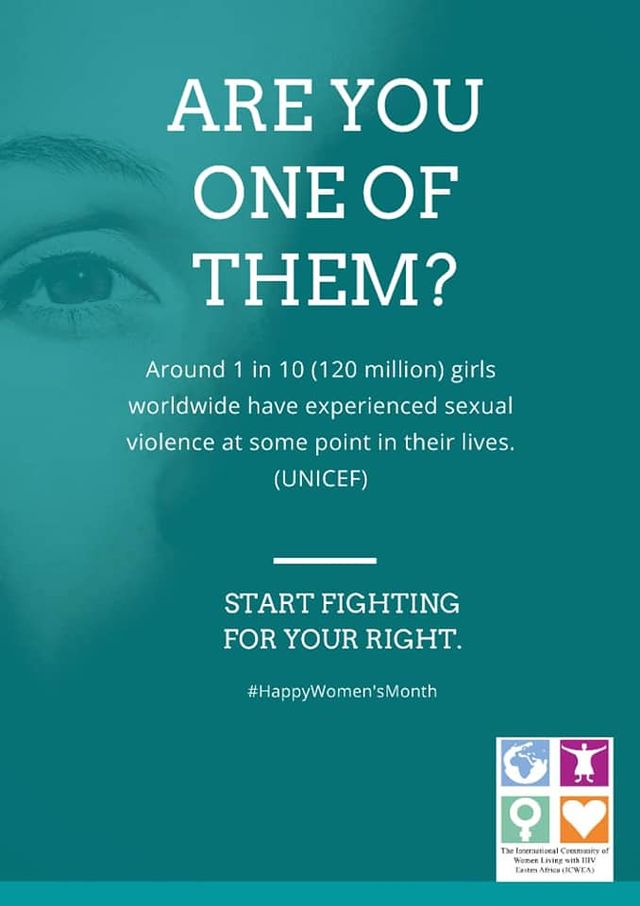Discrimination creates a feeling of being misunderstood with no platform to set misconceptions and issues clear. It undermines the effort to achieve an equitable environment and it causes undeserving inequality in resource allocation, service distribution as well as access to services, which causes suffering for many.

Although discrimination is something everyone has experienced in some way in the course of their lives it should not be a way of life. The International Community of Women Living with HIV Eastern Africa, (ICWEA) urges all people to make discrimination a shameful practice. It should not be normal to favor one human being over the other on any grounds be it sex, religion, or health status. Equality of all persons is a human right and this right must not only be protected by States but must also be promoted in State programming, decision making, and program implementation.As women and girls living with HIV, we have been positioned as a latent source of infection, and have captivated culpability and blame leading to a highly stigmatized and discriminated life. It is important to note that stigma and discrimination go hand in hand and are experienced at different levels of family/household, community, health care settings, education, workplaces.As women and girls living with HIV, we have been positioned as a latent source of infection, and have captivated culpability and blame leading to a highly stigmatized and discriminated life. It is important to note that stigma and discrimination go hand in hand and are experienced at different levels of family/household, community, health care settings, education, workplaces
Women and girls living with HIV are not second class citizens and must be given an equal opportunity with other people to achieve the best in life starting with ensuring that they have adequate access to sexual and reproductive health services, HIV care and treatment services which will ensure a healthy life which then can ensure that they are in position to make meaningful participation in all spheres of development. We need women in roles of leadership, at the community level as well as nationally, regionally and globally. Representation of women’s interests is central to changing structural inequalities and ensuring Zero Discrimination.
“We need to transform our societies so that no one is second class,” said Ms Byanyima. “We must end gender-based violence, inequality and insecurity, and ensure that women and girls have equal access to education, health, public life and employment.”
In conclusion, in order to ensure Zero Discrimination among women and girls, ICWEA calls for actions to catalyze and accelerate implementation of commitments made to end HIV-related stigma and discrimination by Member States, UN agencies, bilateral and international donors, NGOs and communities as essential for ending AIDS as part of achieving the Sustainable Development Goals by 2030.



